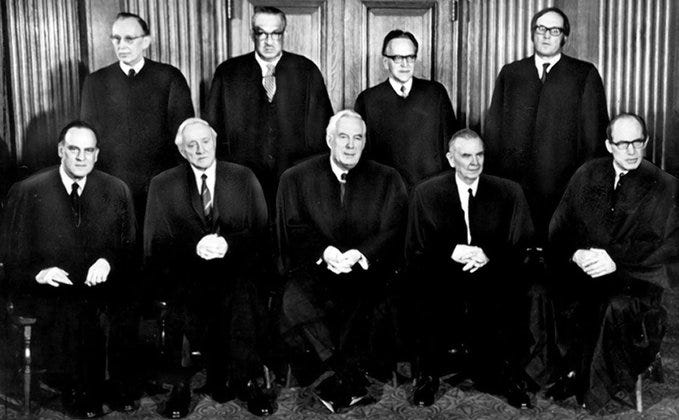
I Miss Shame
The politics of 'tactics' over character and principles are increasingly gross.
Years ago, I sat nearly alone in an undersized, hard-to-find theater downtown to watch a movie titled “Weiner”.
It wasn’t what you might be thinking. The venue was charming and above-board, I was there with my wife, and the 2016 film was a documentary about former Democratic congressman Anthony Weiner’s ill-fated New York mayoral run in 2013.
Weiner was a lightning-rod for controversy, and some may recall that his campaign effectively ended when — after the politician had just recovered from a similar scandal in 2011 — further (and more recent) evidence of his online sexual depravities surfaced.
It was a fascinating but dark documentary on many levels, presenting a candid, often cringe-worthy look into the politician’s personal and political demise.
A couple of particularly memorable scenes show Weiner, desperate to try and salvage his damaged campaign, in the back of a vehicle discussing with staffers how he should address the unfolding controversy in upcoming media interviews. The challenge, as Weiner outright states, is providing answers that won’t conflict with the numerous lies he had told in earlier interviews. It’s really quite amazing to watch him lay out the web of deception he had created, carefully work his way through it (at least rhetorically), and then formulate creative new talking points that he hopes will allow him to escape accusations of dishonesty and hypocrisy.
As we soon find out, even on liberal-friendly networks like MSNBC, it didn’t work.
What strikes me today, when I look back at that film, is that as much as it said about Weiner’s perversions and lack of character, it also said a heck of a lot about how different of a political environment we lived in back then.
Think about it for a minute. 2013 wasn’t really all that long ago, yet even the most shameless politicians back then — of which Weiner was certainly one (even before the sexual revelations) — were politically scared to death of (and worked exhaustively hard to prevent), coming across as a liar or hypocrite.
Were there exceptions to the rule? Yeah, a few (Harry Reid talking about Mitt Romney’s taxes comes to mind). Still, outright lies and glaring hypocrisy were largely viewed as a political liability that could very well come back to bite you on the ass.
Boy how times have changed.
Less than a decade later, it feels like we’re living in the wild west. Blatant dishonesty and breathtaking hypocrisy rarely deal anything more than a glancing blow (usually not even that) to the political figures who routinely demonstrate them. If an elected leader or even a political pundit doesn’t like a particular fact, no problem. He or she can just deny it, and make up some counter-narrative for their base to consume, adopt, and repeat.
Sure, political opponents will protest all day long, but do they really matter? In today’s intensely tribal landscape, such gripes effectively become background noise, even to the moderates — many of whom are fed up with the daily back and forth, and finding themselves less and less politically engaged.
Less engagement means less accountability for conduct, which is why hypocrisy, also, no long carries the stigma it once did.
Yes, shame is in very short supply in today’s politics, and I truly miss it.
I wrote a lot about this topic during the Trump years (when it was mainstreamed on the right) because it was, and continues to be, particularly disheartening to watch so many people on my side of the aisle, including many I used to respect, abandon all such mindfulness.
I mean, literally, as I’m writing this, video-clips of Ted Cruz are being posted online showing Cruz, at some event today, mocking other Republicans for kissing up to Donald Trump.

You may recall that this is the same Ted Cruz who reduced himself to a longtime, slobbering Trump-sycophant after Trump trashed his wife’s looks, and linked his father to the JFK assassination.
(Frankly, if the senator stays true to form, he’ll probably turn up on Tucker Carlson’s show early next week to humbly apologize for today’s remarks — not for his hypocrisy, but because of the point I’m about to make).
Among those, like Cruz, who work in Republican politics or the right-wing political media, this sea-change toward shamelessness came to fruition mostly out of professional survival. I could write a James A. Michener sized book on all the political and ideological about-faces I’ve witnessed from notable righties since 2015, and there’s really only one reason for it. The MAGA era, and the transformation of the GOP into a personality cult, put these people in the unenviable position of having to either abandon their principles and rebrand themselves around the whims of Donald Trump, or run the very real risk of losing their constituencies and audiences, and having to find work elsewhere.
Most, by far, chose the former.
For many regular folks on the right, the shift came from the deluded but self-assuring belief that we are at literal war with the left. And thus any damage we can inflict on liberals (even superficially, rhetorically, or counter-productively, at which Trump excelled) is both necessary and entirely justifiable… not only politically, but also morally.
Conservative columnist David French refers to this phenomenon as “The Great Rationalization,” and recently wrote a must-read column on how it’s been adopted by a disturbing number of American Christians as somewhat of a religious doctrine.
Many people thought (or at least hoped) this sentiment would erode after January 6 and Trump leaving office, but it’s still very much in play and echoed through reflexive denialism, whataboutism, and other mechanisms indicative of a “desperate times call for desperate measures” view of things.
The lasting result is a long list of conduct and positions deemed wholly unacceptable by the right whenever the left borrows from it, but perfectly appropriate (and even virtuous) when the right uses it.
Of course, the shamelessness is by no means limited to the right. With the Democrats back in power in Washington, it’s been front and center in a big way.
Joe Biden ran for president on a platform of healing the nation — or at least turning down the volume and temperature after four years of Donald Trump. Yet, he has made stoking the political divide a hallmark of his tenure, still blaming Trump and the Republicans for his woes as president, and focusing his efforts on sweeping (and extraordinarily costly) ideological initiatives, some of which occasionally compel him to compare political opponents to historical racists.
With the very real possibility that Roe v. Wade will be overturned this summer, many lefties, who (rightly) decried the violation of political norms under Trump, are now shrugging off the norm-desecrating leak of Justice Alito’s draft, while ratcheting up calls for President Biden to stack the Supreme Court with liberal justices — a move that would alter its number of seats for the first time in over 150 years.
Democrats have been right in their condemnations of, as White House Press Secretary Jen Psaki recently put it, “voices on the right” who remained “silent for years on protests that have happened outside of the homes of school board members, the Michigan Secretary of State … or even an insurrection against our Capitol.” The problem is that she used those words in defense of liberals protesting outside of conservative Supreme Court justices’ homes, with the intent of intimidating those justices into changing their vote on Dobbs v. Jackson Women's Health Organization (to preserve Roe v. Wade).
And while I stopped responding to my Facebook friends’ political posts some time ago (a practice I highly recommend), it’s taken some real discipline not to reply to the many memes I’ve seen (echoed by numerous Democratic politicians and liberal-media personalities) arguing that men should have no say in abortion decisions, with the below picture of the justices who decided Roe v. Wade back in 1973.
I’ve long understood that politics is a contact sport, and that it’s not for the faint-hearted, and all of those other tired old euphemisms. But at least, in the past, political battles were a means to an end. Today, they often feel directionless. Guiding principles have given way to tactics, and lots of times it’s not even clear what exactly is being fought for.
Case in point, again as I’m writing this, here’s a message just in from Elise Stefanik, the third-raking House Republican:

Usual pedo grifters? What does that even mean? There’s a group of pedofiles out there somewhere, who Stefanik knows by name (since she referred to them as “usual”), who are denying Americans of baby formula? If so, this is an outrage. What’s Stefanik and her party doing to stop them?
The answer is nothing, because this is shameless and perverse political garbage that would have faced sharp consequences a few years ago. But in the year 2022, I doubt anyone will remember it three days from now.
God, I miss shame.













Excellent piece John. I too miss shame, and lament the acceleration of the degradation in our political discourse. Like you, I stopped engaging in most political commentary and debates initiated by my friends and others on Facebook a few years back. And I don’t regret it one bit.
Excellent.